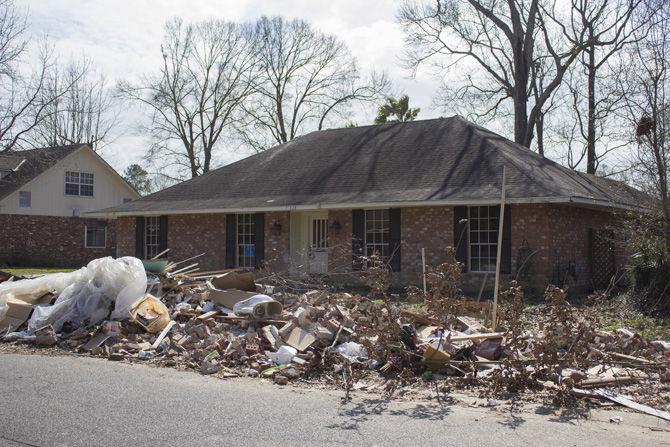A poll conducted by the Morning Consult following Hurricane Maria found only 54 percent of Americans are aware that those affected in Puerto Rico are U.S. citizens. The study also found 81 percent of those aware of the U.S. citizenship of Puerto Ricans would support sending aid, while only 44 percent of those who did not would support sending aid.
The public’s lack of concern for devastation of this scale speaks to a larger apathy toward tragedies not geographically proximate to the U.S. Simply put, if Americans cannot directly identify with those in crisis, they do not care as much. Because many Americans feel far-removed and are largely unaffected by Hurricane Maria, the severity and devastation of the storm was notably less publicized than Hurricane Irma and Harvey. Additionally, far fewer federal personnel were sent in response to Maria and though the financial burden of the disaster is still unclear, significantly less money has been donated to aid the situation, according to CNN.
Apathy toward this devastation even reached the White House. President Donald Trump spent the better half of the weekend after Hurricane Maria made landfall golfing in New Jersey and tweeting about recent controversies involving the National Football League. Instead of hastily sending support through whatever means necessary, Trump hurled insults at the mayor of San Juan and delayed taking action toward aiding our fellow American citizens.
Televised news coverage of such events has both furthered and hindered the public’s ability to sympathize with those affected by tragedies which may have once appeared distant. Televised coverage allows viewers to witness live, sometimes graphic, footage of devastation. On the other hand, viewers are often inundated with so much coverage of death and destruction that many become desensitized to its existence. It is possible following the extensive coverage of the catastrophic effects of Hurricanes Harvey and Irma, the
American public has become numb towards these types of natural disasters. However, it is hard to imagine Americans would ignore the complete destruction of Arkansas or Mississippi, states with lower populations than Puerto Rico, just because they were tired of hearing about hurricanes.
A 2013 Pew Research Center study found Americans are far more likely to approve of cutting foreign aid than of domestic spending. This finding is a reiteration of the public’s disassociation with those who are not in close geographic or cultural proximity, even in times of desperate need. If Americans aren’t quick to reach out to help fellow U.S. citizens in a time of severe need, then it’s scary to think of how little support foreign countries will receive.
It can become second nature to judge who is worthy of our sympathy and assistance by measuring their geographic or cultural proximity to one’s self. However, Americans should not become numb to the plights of others simply because those affected seem distant. No place on this planet is tragedy so remote that the shock waves are not felt across the world.
Hannah Kleinpeter is a 20-year-old mass communication junior from Baton Rouge, Louisiana.
Opinion: Geographic proximity to disasters dictates public’s level of empathy
October 4, 2017
Debris sits on the lawn of a house in Sherwood Forest on Saturday, Feb. 11, 2017, on Woodcliff Drive in Baton Rouge, Louisiana.





